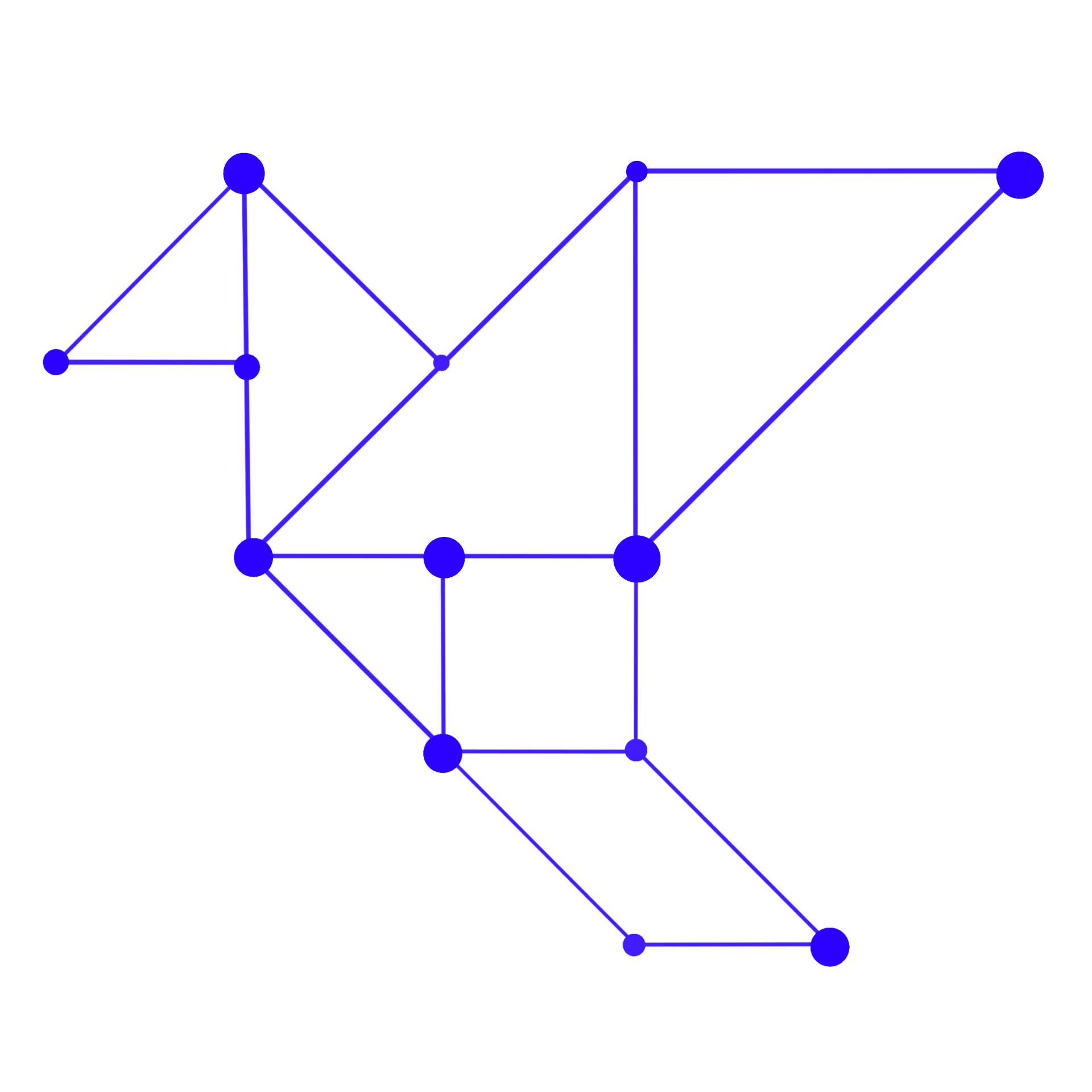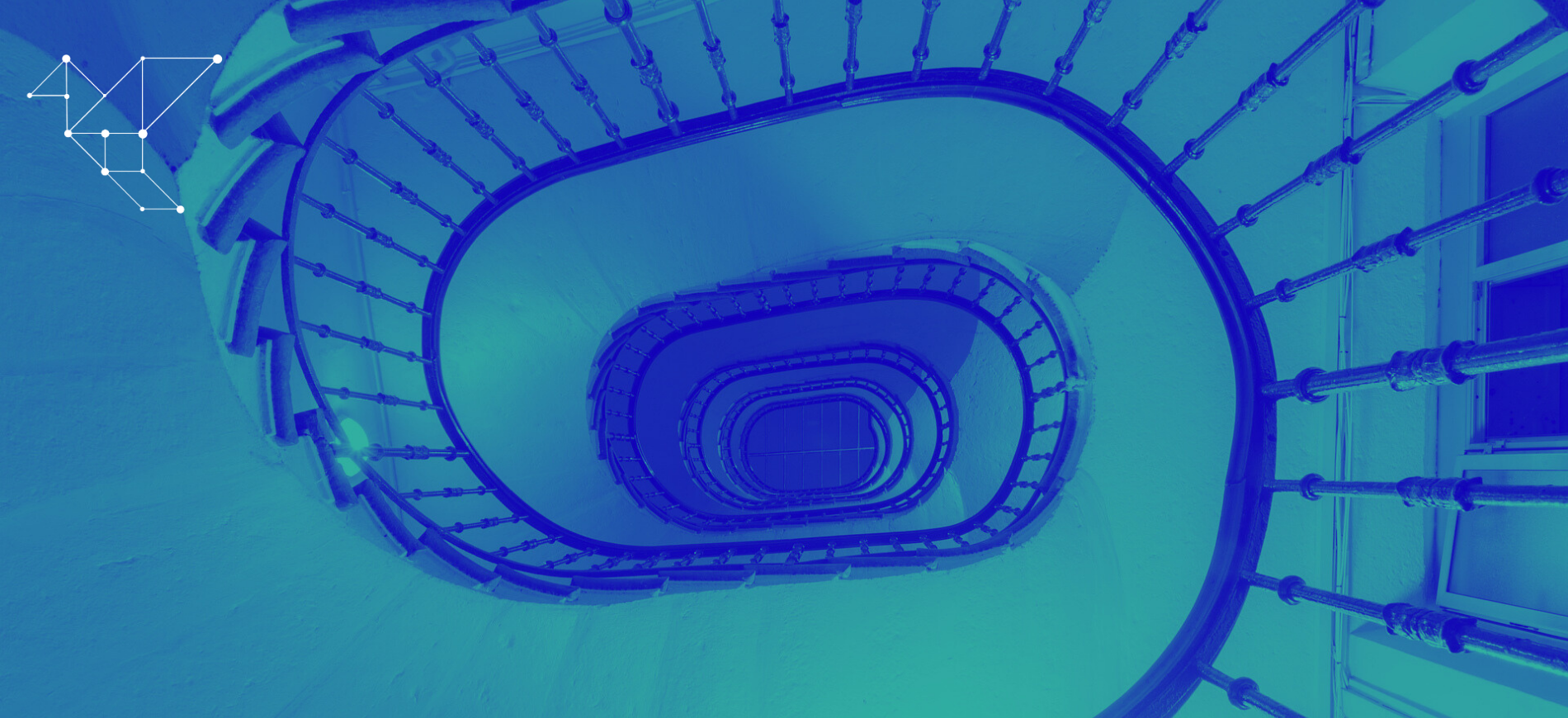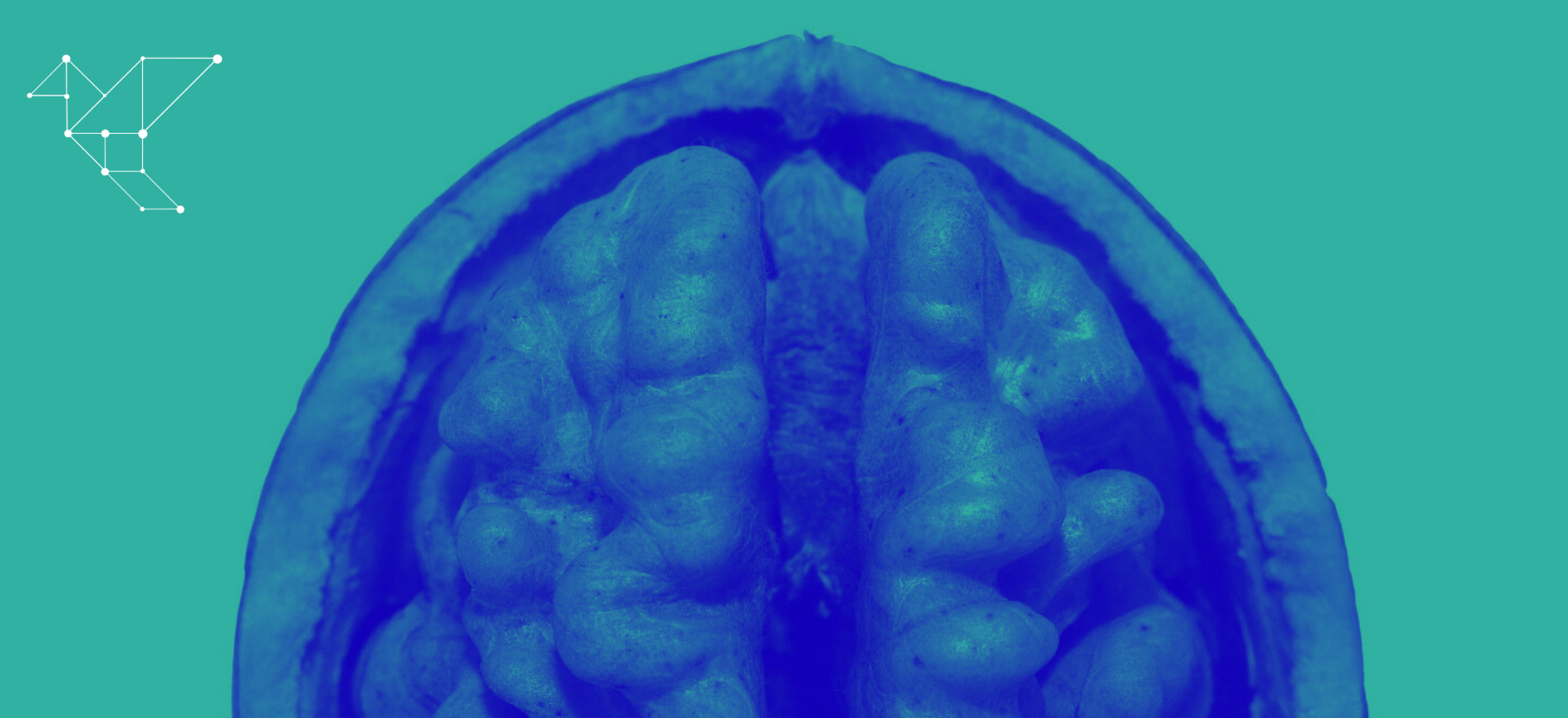Kenmerken van hoogbegaafdheid
Het denken en het zijn, verschillende modellen van hoogbegaafdheid
Er zijn in de loop der jaren verschillende modellen ontwikkeld rond hoogbegaafdheid. In dit blog zal ik er een aantal delen. Ik geef de bron erbij, voor als je echt de diepte in wil. Rabbit hole alert voor diegenen met een sterk kerntalent pro-actieve kennisverwerving (in de breedte of de diepte) ;)
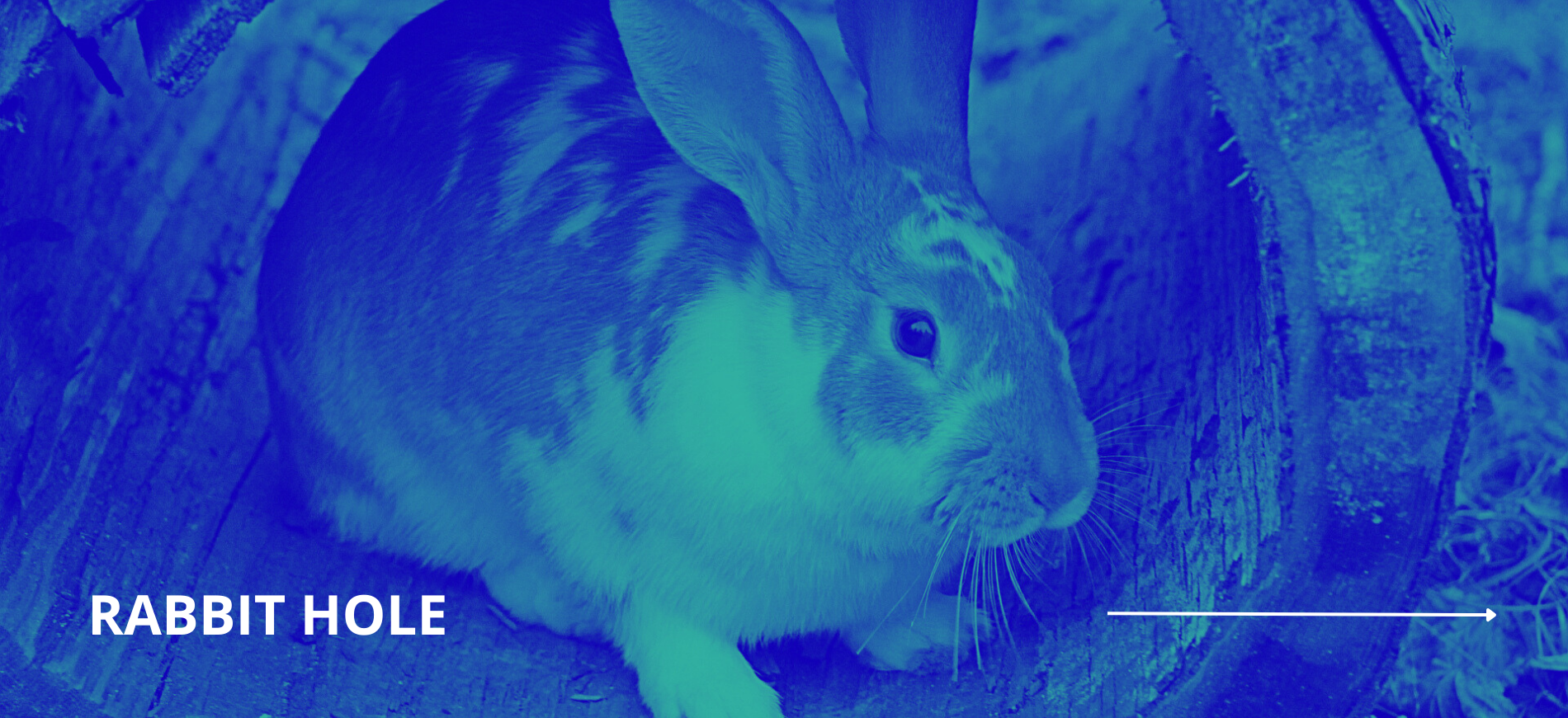
Het drieringenmodel van Renzulli combineert hoge intellectuele vermogens met taakgerichtheid en creatief vermogen. Later werd dit model aangevuld door Mönks. In zijn meerfactorenmodel illustreert hij naast de aanlegfactoren van Renzulli de interactie met de omgeving, die zo belangrijk is voor een gezonde ontwikkeling.
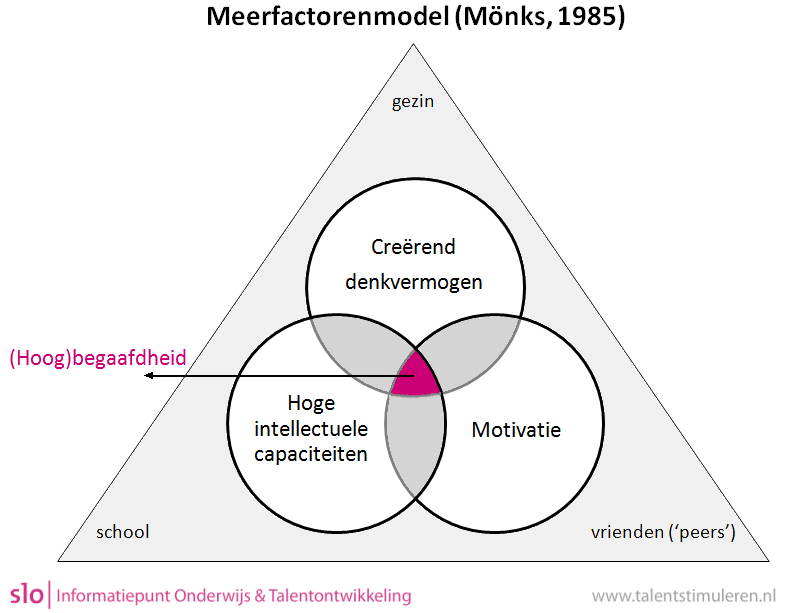
Hoogbegaafdheid gaat over meer dan intelligentie of een hoge score op een IQ test. Kieboom benadert het in haar model vanuit cognitie en zijn, oftewel het denk-luik en het zijns-luik. In het denk-luik zien we de leerhonger terug in de vorm van intellectuele capaciteiten, motivatie en creativiteit.
In het zijns-luik zien we perfectionisme (waarvan een zeer hoge lat en faalangst onderdeel kunnen zijn), rechtvaardigheidsgevoel (waaruit eindeloze discussies en confrontaties met gezaghebbers voort kunnen komen), kritische ingesteldheid (een hoge mate van zelfreflectie en soms pijnlijke eerlijkheid > verschil maken tussen vorm en inhoud) en tot slot hoogsensitiviteit (met onderandere intense indrukken en waarneming en een grotere emotionele intensiteit). Naarmate het potentieel hoger is, is er sprake van een hoger en sterker bewustzijn.
Tessa Kieboom & Kathleen Venderickx schreven het boek
Meer dan intelligent: de vele gezichten van hoogbegaafdheid bij jongeren en volwassenen.
"Een hoogbegaafde is een snelle en slimme denker, die complexe zaken aankan. Autonoom, nieuwsgierig en gedreven van aard. Een sensitief en emotioneel mens. Intens levend. Hij of zij schept plezier in creëren."
Veel volwassenen herkennen zich in het Delphimodel Hoogbegaafdheid©, Kooijman- van Thiel 2008. In dit model wordt het zijn geschetst als autonoom, het denken als hoog intelligent, het voelen als rijk geschakeerd, het willen als gedreven en nieuwsgierig, het doen als scheppingsgericht en het waarnemen als hoogsensitief. Het samenspel van al deze elementen is complex, intens, snel en creatief.
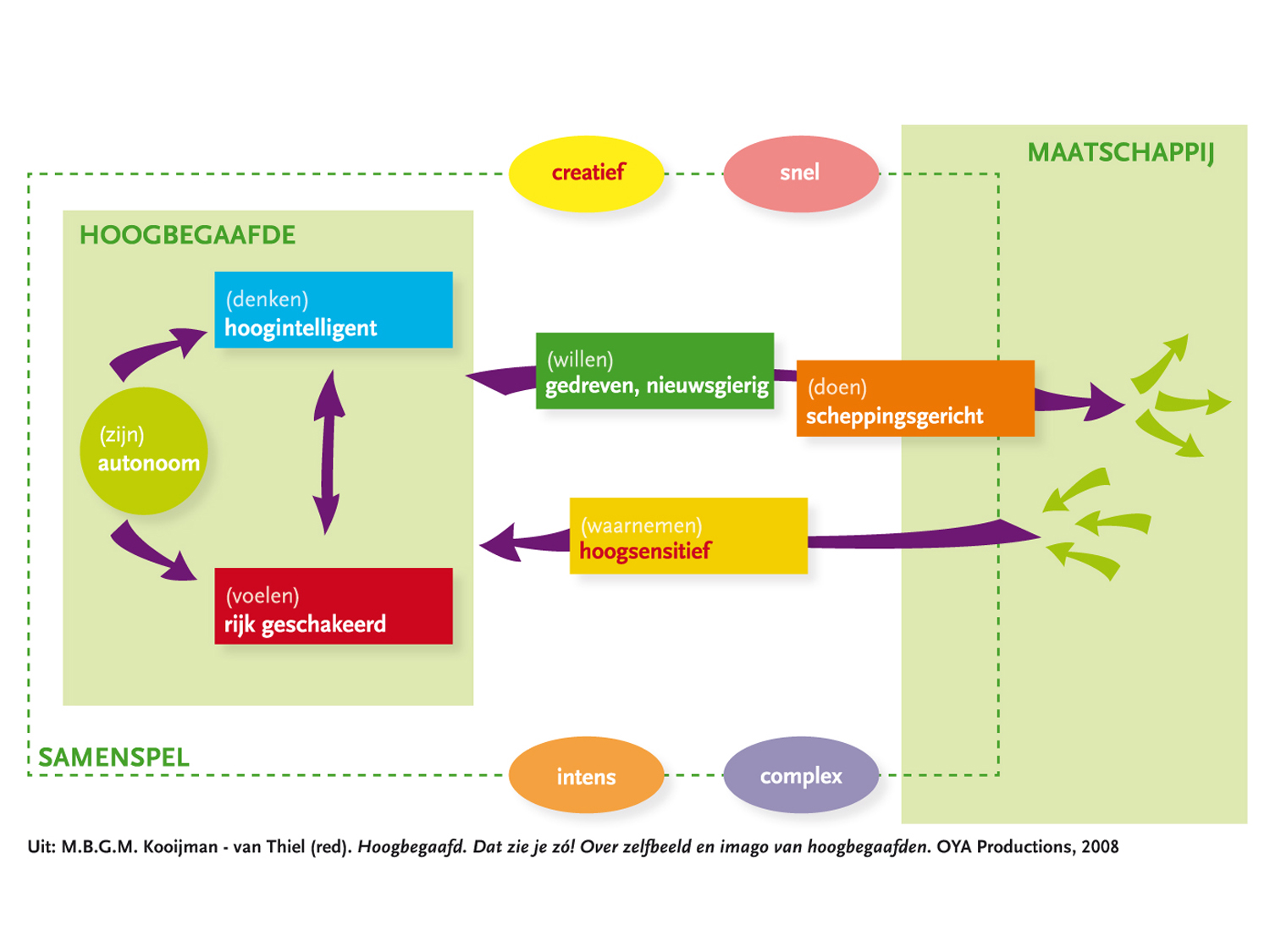
Een recent model dat voortbouwt op deze modellen is de HB-cirkel van ontwikkeling, ontwikkeld door Marga Spanjaars en Arja Roozemond. Zij zien het model als instrument, zowel om inzicht te krijgen in de invloed van hoogbegaafdheid op de ontwikkeling vanuit een begeleidende rol als voor de hoogbegaafde om zichzelf beter te leren kennen in relatie tot zijn of haar omgeving.

Uit mijn notities: de kenmerken van hoogbegaafde kinderen zoals James T. Webb ze beschreef in zijn boek De begeleiding van hoogbegaafde kinderen. Een ander prachtig boek van hem is trouwens Searching for meaning, Idealism, Bright Minds, Disillusionment, and Hope. Een aanrader!
In de kern staat Kenmerken van hoogbegaafde kinderen. Daar omheen: intensiteit, dagdromen, redenen en achtergronden willen begrijpen, ongeduld jegens zichzelf en anderen, opmerkelijk gevoel voor humor, sterke verbale begaafdheid, langere aandachtsspanne, sterke fantasie en creativiteit, ongebruikelijk goed geheugen, interesse in experimenteren, intense nieuwsgierigheid, brede interessen, complex denken, sensitiviteit en bezorgdheid over sociale of politieke problemen en onrecht.
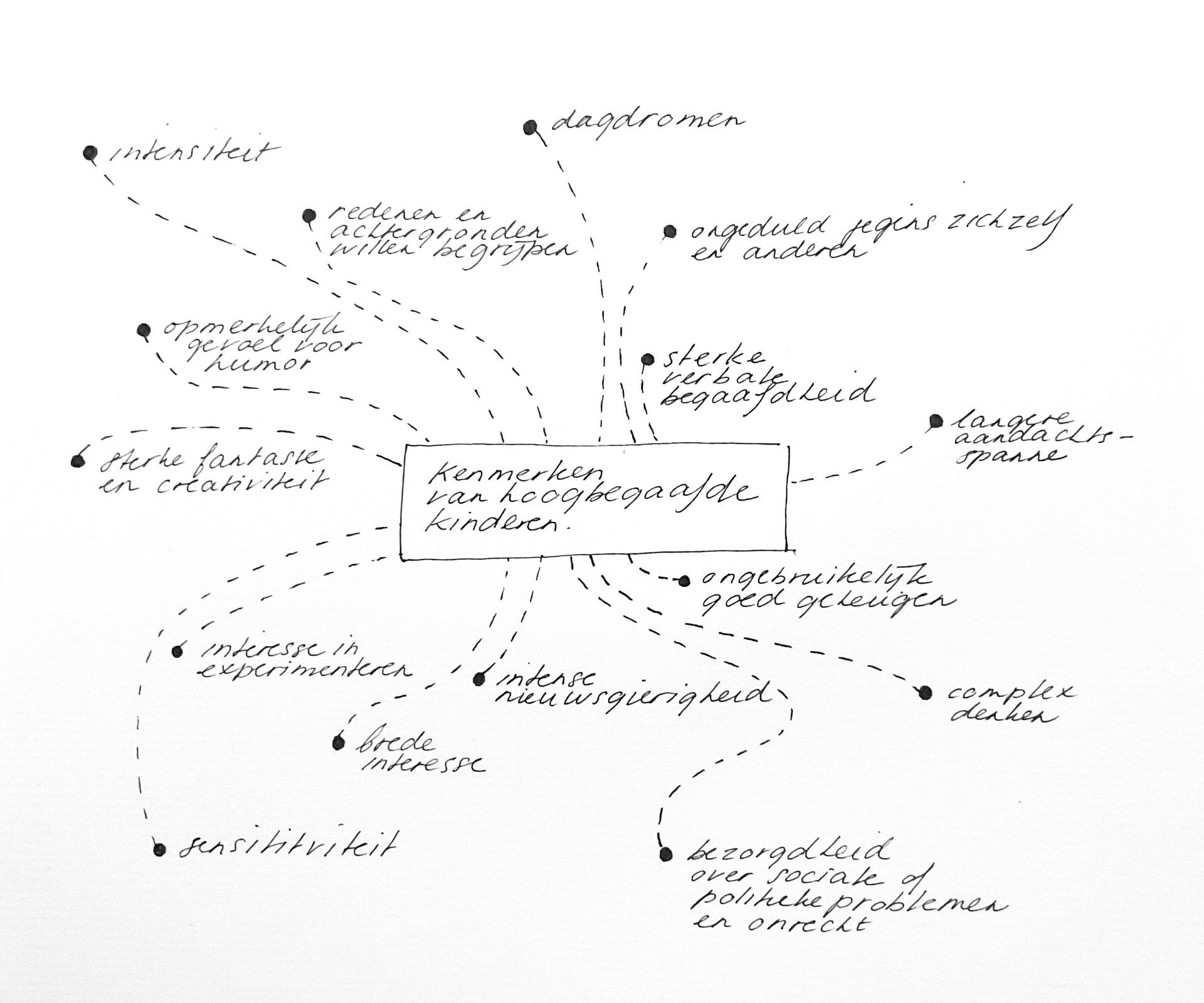
Tot slot de invalshoek van Betts en Neihart. Zij ontwikkelden zes profielen van (hoog)begaafde leerlingen en baseerden zich daarbij op jarenlange ervaring in de vorm van observaties, interviews en literatuuronderzoek. De profielen geven informatie over gedrag, gevoelens en behoeften van de verschillende typen leerlingen.
De zelfsturend autonome leerling herken je omdat ze durft te leren, goede prestaties levert en dit realiseert in goed contact met haar omgeving. De aangepaste, succesvolle leerling levert wel goede prestaties maar presteert niet naar eigen vermogen. De onderduikende leerling doet er alles aan om niet op te vallen terwijl de uitdagende creatieve leerling met bijzondere oplossingen of invalshoeken komt. Zie je naast kenmerken van begaafdheid ook kenmerken van leer- en/of gedragsproblemen dan heb je misschien te maken met een dubbel bijzondere leerling. En tot slot is er de risicoleerling (drop-out), die over het algemeen erg creatief en gevoelig is en het risico loopt niet meer deel te kunnen of willen nemen aan het (reguliere) onderwijs.
Als je je hier verder in wil verdiepen is deze pagina van Talentstimuleren een goed startpunt. En in dit document vind je een uitgebreidere beschrijving en waardevolle suggesties voor het herkennen en ondersteunen van leerlingen met kenmerken van een bepaald profiel.
Dit overzicht is niet compleet, dat is het doel ook niet. Maar, is er een model dat jou raakte of inzicht gaf en zeker niet mag ontbreken dan hoor ik dat graag. Voeg ik het toe voor de volgende lezer!
